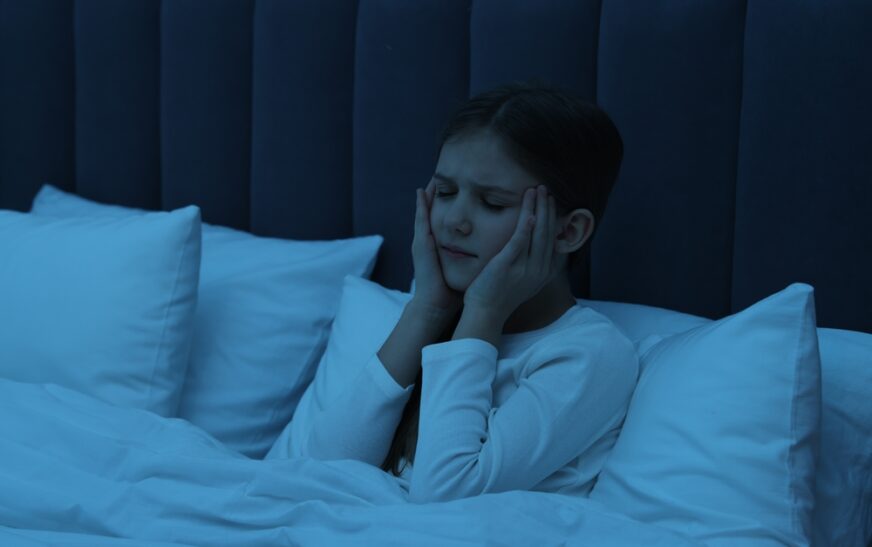In a world where insomnia dominates many conversations about sleep disorders, discussing tips for the opposite of insomnia can be refreshing and invaluable. The opposite of insomnia is often referred to as “hyper insomnia” or “hypersomnia,” where an individual experiences excessive sleepiness during the day or sleeps for unusually long periods.
However, in a broader and more positive sense, the opposite of insomnia can be understood as achieving restful, restorative sleep. This guide aims to explore practical strategies for achieving such restful sleep, fostering a healthier, more energized life.
Understanding Restful Sleep
Restful sleep is a state where the body and mind are fully rejuvenated after sleep. Unlike hypersomnia, which can be indicative of underlying health issues, restful sleep leaves one feeling refreshed and alert throughout the day. Achieving this state involves both the quantity and quality of sleep, adhering to a consistent sleep schedule, and creating an optimal sleep environment.
Creating an Optimal Sleep Environment
The environment in which you sleep plays a crucial role in determining the quality of your rest. Here are some tips to create a sleep-conducive environment:
- Keep the Room Cool and Dark: A cool, dark room can significantly enhance sleep quality. Aim for a room temperature between 60-67°F (15-19°C). Use blackout curtains or an eye mask to block out light.
- Minimize Noise: Reduce noise as much as possible. White noise machines or earplugs can help if you live in a noisy area.
- Comfortable Bedding: Invest in a good mattress and pillows. Your bed should support your body in a way that encourages restful sleep.
- Declutter: A tidy room can promote a sense of calm and relaxation, making it easier to fall asleep.
Establishing a Sleep Routine
A consistent sleep routine can train your body to recognize when it’s time to wind down and prepare for rest.
- Set a Regular Sleep Schedule: Go to bed and wake up at the same time every day, even on weekends. This helps regulate your body’s internal clock.
- Wind Down Before Bed: Create a pre-sleep routine that signals your body it’s time to relax. This could include activities such as reading, taking a warm bath, or practicing gentle yoga.
- Limit Screen Time: The blue light emitted by phones, tablets, and computers can interfere with your body’s production of melatonin, the hormone that regulates sleep. Try to avoid screens at least an hour before bedtime.
Diet and Lifestyle Choices
What you eat and drink, and how you live your life, can have a profound impact on your sleep.
- Watch Your Diet: Avoid heavy meals, caffeine, and alcohol close to bedtime. These can disrupt sleep or make it harder to fall asleep.
- Stay Active: Regular physical activity can help you fall asleep faster and enjoy deeper sleep. However, try not to exercise too close to bedtime as it might have a stimulating effect.
- Hydrate Wisely: While staying hydrated is important, try to limit fluids before bed to minimize nighttime awakenings.
Managing Stress and Anxiety
Stress and anxiety are common culprits behind poor sleep. Developing strategies to manage them can significantly improve your sleep quality.
- Mindfulness and Meditation: Practices such as mindfulness meditation can calm your mind and reduce stress, making it easier to fall asleep.
- Journaling: Writing down your thoughts before bed can help clear your mind of worries and to-do lists, allowing you to relax.
- Deep Breathing Exercises: Techniques like deep breathing can help activate the body’s relaxation response, preparing you for sleep.
Understanding Your Sleep Cycles
Awareness of your sleep cycles can also enhance the quality of your rest. The human sleep cycle consists of different stages, including light sleep, deep sleep, and REM (rapid eye movement) sleep. Each stage plays a unique role in restoring your body and mind.
- Track Your Sleep: Consider using a sleep tracker to understand your sleep patterns better. This can help you identify any disruptions and make necessary adjustments.
- Allow for Natural Wake-Ups: If possible, wake up without an alarm to allow your body to complete its natural sleep cycle. This can leave you feeling more refreshed.
Seeking Professional Help
If you consistently struggle with achieving restful sleep despite making these changes, it may be time to seek professional help. Sleep disorders can often be a symptom of underlying health issues that need to be addressed.
- Consult a Sleep Specialist: A sleep specialist can provide a thorough evaluation and develop a treatment plan tailored to your needs.
- Consider Cognitive Behavioral Therapy for Insomnia (CBT-I): CBT-I is a highly effective treatment for chronic insomnia that involves changing the thoughts and behaviors that contribute to sleep problems.
- Medication: In some cases, medication may be necessary. Always consult a healthcare provider before starting any sleep-related medication.
Embracing a Holistic Approach
A holistic approach to sleep considers all aspects of your lifestyle, including physical health, mental well-being, and environmental factors. Integrating various strategies can create a comprehensive plan for achieving the restful sleep you desire.
- Mind-Body Practices: Practices such as yoga, tai chi, and progressive muscle relaxation can help improve sleep by reducing stress and promoting physical relaxation.
- Balanced Lifestyle: Ensure a balanced lifestyle with time for work, rest, and leisure. Overworking or lack of downtime can negatively impact sleep quality.
- Positive Sleep Associations: Create positive associations with your sleep environment by reserving your bed for sleep and intimacy only. Avoid working or watching TV in bed.
Dig Deeper: Why CPAP Titration is Crucial for Sleep Apnea Patients
Daytime Tips for Better Sleep
Achieving restful sleep isn’t just about what you do right before bed—it’s about cultivating healthy habits throughout the day. Daytime behaviors and routines can significantly impact your sleep quality at night.
- Expose Yourself to Natural Light: Sunlight helps regulate your circadian rhythm. Aim to get at least 30 minutes of natural sunlight exposure each day, especially in the morning.
- Limit Naps: While short naps can be beneficial, long or irregular napping during the day can negatively affect your nighttime sleep. If you nap, try to keep it under 30 minutes and avoid napping late in the afternoon.
- Stay Mentally Active: Engaging in stimulating activities, whether through work, hobbies, or social interactions, can promote better sleep. Mental fatigue can help you fall asleep faster and enjoy deeper sleep.
Wrapping It Up
In conclusion, achieving the opposite of insomnia—restful, restorative sleep—requires a multifaceted approach. This includes optimizing your sleep environment, establishing a consistent sleep routine, and making thoughtful diet and lifestyle choices. Other than managing stress, understanding your sleep cycles, and seeking professional help is also necessary. By integrating these strategies into your daily life, you can improve your sleep quality and overall well-being.
For those struggling to achieve restful sleep and suspect they might be dealing with insomnia, seeking professional help is crucial. An online telehealth session for insomnia can provide convenient access to sleep specialists who can help diagnose and treat sleep disorders from the comfort of your home. Taking the first step towards addressing sleep issues can lead to significant improvements in your health and quality of life.
Feel free to submit more guest posts through Links Building Servcies - Best Prices. Buy Author Account / 1$ Guest Post Here






















